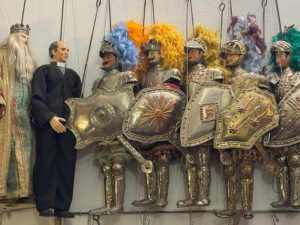
Contents
- 1 Introduction: The Battle After the Battle
- 2 Part I: Why War Is Easier Than Peace
- 3 Part II: The Historical Pattern—From Triumph to Turmoil
- 4 Part III: The Psychology of Peace
- 5 Part IV: Modern Wars of Peace
- 6 Part V: The Art of Winning Peace
- 7 Part VI: Personal Application—Winning Peace in Everyday Life
- 8 Part VII: The Blueprint for Lasting Peace
- 9 Conclusion: The Hardest War of All
- 10 Related Articles
Introduction: The Battle After the Battle
It’s been said that the true test of power isn’t how well you fight, but what you do after you win. Every empire, army, corporation, and even relationship that has ever gone to war—literal or metaphorical—has learned this brutal truth the hard way.
Winning war is easy compared to winning peace.
In war, the enemy is clear, the objective simple: destroy, conquer, survive. But in peace? The lines blur. Allies become rivals, ideals rot into politics, and yesterday’s hero becomes today’s bureaucrat. History shows that peace isn’t the end of conflict; it’s just the start of a far more subtle and dangerous game—one fought not with weapons, but with words, egos, and power vacuum chaos.
Part I: Why War Is Easier Than Peace
1. War Simplifies Everything
In war, clarity reigns. There are two sides, a mission, and a scoreboard of survival. Soldiers don’t argue about philosophy in the trenches—they fight because hesitation gets you killed.
Peace, on the other hand, is murky. Once the smoke clears, you’re stuck rebuilding what you’ve just blown apart—and that’s where things fall apart. You’ve got hungry mouths, competing visions, and ghosts of old loyalties.
The world’s most dangerous question emerges: Now what?
2. Victory Breeds Complacency
Nothing dulls the edge of greatness like victory. The Romans learned this when they went from conquering the known world to squabbling over togas and titles. Napoleon’s army went from marching across Europe to being swallowed by the snow of their own arrogance.
Winning brings a sense of invincibility, which breeds overconfidence, which leads straight to collapse. In war, failure sharpens the mind. In peace, success dulls it.
3. Enemies Unite You—Peace Divides You
Every army, company, or movement thrives on a common enemy. The moment the enemy disappears, so does the unity. Suddenly the generals turn on each other, the foot soldiers wonder what they fought for, and the people start asking questions nobody can answer.
You can see this pattern from the fall of the Soviet Union to the breakup of garage bands. Shared struggle binds; peace tests the strength of that bond—and often reveals it was never real.
Part II: The Historical Pattern—From Triumph to Turmoil
1. Rome: Built by War, Broken by Peace
Rome’s greatness was forged on the battlefield. Legion by legion, it devoured its enemies and called it civilization. But when the wars stopped, decadence began.
The citizens grew soft, the senate corrupt, and the soldiers sold their loyalty to the highest bidder. The real collapse of Rome didn’t begin with invaders at the gates—it began with moral rot within the walls.
Rome could win wars. It couldn’t manage peace.
2. America: The Endless Struggle Between Victory and Division
After World War II, the United States emerged as the strongest nation in history. Yet within a few decades, it was fighting itself—socially, politically, and spiritually. The Cold War gave purpose; when that ended, the nation turned inward, searching for identity in consumerism and cultural warfare.
Winning peace requires self-awareness. America’s challenge isn’t external anymore—it’s internal: how to maintain unity, purpose, and integrity without an enemy to fight.
3. The Corporate Parallel: From Start-Up Struggle to Boardroom Bloat
In business, “war” is the startup phase—lean, hungry, focused. Everyone pulls together to survive. “Peace” is success—and that’s when the rot sets in.
Suddenly there are meetings about meetings. The hungry innovators are replaced by risk-averse managers. The company forgets why it started. That’s why giants like Kodak, Nokia, and Yahoo fell—not from defeat, but from peace-induced amnesia.
They stopped fighting for relevance. They mistook comfort for victory.
Part III: The Psychology of Peace
1. The Addiction to Adrenaline
War gives structure. It provides adrenaline, purpose, identity. When it ends, those who’ve lived in survival mode feel lost. Soldiers without battlefields often become men without meaning. The same happens in business, activism, or personal life.
Many people unconsciously recreate conflict just to feel alive again. They manufacture drama, sabotage relationships, or start new fights. They don’t want war—they just can’t handle silence.
2. The Moral Hangover of Victory
Peace forces us to confront what we did to win. The casualties, compromises, and moral shortcuts we justified “for the greater good” come back to haunt us.
The warrior who won the battle must now become the healer who cleans up the aftermath—and that requires a different kind of courage. The courage to forgive, to rebuild, to admit wrongdoing. It’s not glamorous, and it doesn’t make good headlines, but it’s what separates wisdom from mere victory.
3. The Ego Trap
In war, leaders rise by boldness. In peace, they fall by ego. The same traits that win wars—decisiveness, aggression, charisma—often destroy nations when diplomacy and humility are needed.
The inability to adapt is fatal. History is littered with victorious generals who couldn’t transition from warriors to statesmen. Alexander, Caesar, Napoleon—they all mastered the art of war but failed to master themselves.
Part IV: Modern Wars of Peace
1. The Post-War Within: Personal Battles
Let’s zoom in from nations to individuals.
Ever notice how people can survive hell—addiction, illness, heartbreak—and then crumble when life gets good? That’s because peace requires a skill most of us never learn: maintenance.
When you’re fighting for survival, you know what to do. When you’ve survived, you face the far greater challenge of living.
Recovery isn’t just about stopping the fight—it’s about building a life worth protecting afterward.
As any former addict, veteran, or trauma survivor will tell you, peace is the hardest victory of all.
2. The Digital Battlefield
Social media has turned every phone into a propaganda machine. Every day we’re at war with algorithms, misinformation, and dopamine addiction.
Winning peace online means mastering the art of disconnection—of choosing sanity over engagement. That’s the modern battlefield: attention.
The armies aren’t made of soldiers but influencers; the weapons aren’t bullets but narratives. And most of us are losing not because we’re outnumbered, but because we keep logging in.
3. The Planetary War for Sustainability
Humanity won the industrial war. We conquered nature, harnessed energy, and built civilizations of steel and glass. But now we face the cost: climate chaos, extinction, and exhaustion.
Winning peace with the planet isn’t about domination—it’s about reconciliation.
The irony? The same species that can design nuclear weapons struggles to design compost systems that work. It’s not lack of intelligence—it’s lack of humility.
Part V: The Art of Winning Peace
1. Replace Victory with Vision
The key to peace is purpose. After war, the mission must evolve. You can’t build a future on revenge or nostalgia. Vision unites; victory divides.
After every battle—personal or political—ask: What now serves the greater good? Without that question, peace decays into complacency.
2. Lead With Reconciliation, Not Retribution
True leadership after conflict means healing wounds, not reopening them. Nelson Mandela understood this. After 27 years in prison, he could have ruled with vengeance. Instead, he chose forgiveness and rebuilt a nation.
Winning peace requires the rarest kind of strength—the power to let go of being right, and focus on being whole.
3. Build Systems, Not Statues
After every victory, humans build monuments—to remember, to glorify, to freeze time. But peace demands movement, not marble.
Instead of statues, build systems—of justice, education, and cooperation—that prevent the next war. As the saying goes, “Don’t fight for peace; build it.”
4. Control the Narrative Before It Controls You
Every post-war era begins with a story. Whoever tells it shapes the future. That’s why empires hire historians, religions write scriptures, and governments rewrite textbooks.
Peace requires truth, not propaganda. If we lie to ourselves about how we won, we guarantee another war.
The same is true personally: if you romanticize your survival story, you’ll never grow beyond it.
5. Make Peace Profitable
One of the main reasons peace fails is that war pays better. Armies, corporations, and even politicians profit from conflict. To win peace, we have to make peace pay.
Economies built on creation, innovation, and cooperation will always outlast those built on destruction. The trick is to align incentives—make sustainability and fairness the new engines of growth.
Part VI: Personal Application—Winning Peace in Everyday Life
1. Relationships
Ever been in a relationship where you “won the argument” but lost the connection? That’s the microcosm of this entire concept. Winning peace in love means prioritizing harmony over ego.
It’s learning that the goal isn’t to win—but to understand, adapt, and grow together.
Peace requires vulnerability. That’s why it’s harder than war.
2. Work and Success
You grind for years to build your career or business. Then you finally “make it.” But now what?
Many entrepreneurs crash not because they failed, but because they didn’t prepare for success. They never built emotional infrastructure for peace.
The solution: keep a warlike discipline but a peaceful heart. Stay hungry, stay humble, stay human.
3. The Inner Battlefield
Every human mind is a warzone between fear and faith, chaos and clarity. Meditation, prayer, journaling, and mindfulness aren’t luxuries—they’re weapons of peace.
Peace is not the absence of conflict. It’s mastery over reaction.
When you can observe without being consumed, you’ve won the only war that ever really mattered: the one within.
Part VII: The Blueprint for Lasting Peace
- Know what you fought for – If you can’t define the purpose of your battle, peace will dissolve into confusion.
- Reward builders, not destroyers – Transition from warriors to architects.
- Educate for empathy – Teach the next generation how to debate without dehumanizing.
- Create rituals of renewal – Peace must be celebrated, practiced, maintained.
- Stay vigilant – Peace doesn’t mean disarming. It means redirecting vigilance from enemies to entropy.
Peace is like a garden—it grows weeds if neglected.
Conclusion: The Hardest War of All
The greatest leaders in history weren’t those who conquered armies; they were those who conquered chaos after the armies went home.
Winning peace requires humility after victory, discipline after danger, and faith after fear. It means building a world that doesn’t need constant crisis to feel alive.
The truth is, we humans are addicted to war in all its forms—political, spiritual, psychological. But the next evolutionary step isn’t learning to fight better. It’s learning to live better.
Peace is not the absence of conflict; it is the mastery of coexistence.
If war tests our strength, peace tests our soul. And history—both global and personal—shows that the soul is the harder thing to save.





